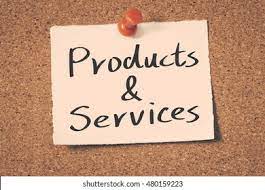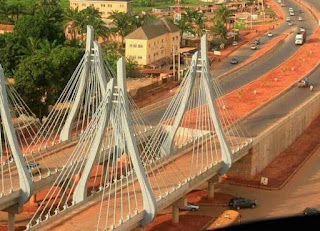HOW TO INVEST IN NIGERIAN FARMLAND
Farmland or agricultural land is one type of investment that is regularly overlooked. This guide on how to invest in Nigerian farmland shows how to make long and short term profit from farmland.
Investors can see
significant benefits from investing in farmland, as against commercial or
residential, depending on where and what type of farmland you purchase.
Farmland is actually one of the best long-term real estate investments out
there (due to the rising global demand for food). As such, farmland can be used
as part of a land banking strategy in Nigeria.
A simple method of
making money from farmland is buying up prime agricultural land and leasing it
back to local farmers. However, there are other methods of potentially
generating an income.
This article aims to
shed light on why investing in farmland and by extension agriculture in
Nigeria, is a great thing to do. Ways you can actually go about profiting from
it will also be discussed.
Why invest in farmland
Farmland investments can
be lucrative for many reasons, primarily because agriculture is an integral
part of our lives: the food that we eat daily comes by the way of farming.
Agriculture is all the
processes involved in the production of food, fiber, feed, and other needed
products by the growing of different crops and the raising of livestock
(domesticated animals).
To practice agriculture
suitable land is needed. Without this, animals cannot be raised and
plants/crops cannot be grown in enough quantities.
Since life is so
dependent on agriculture, as the global population increases so too will the
demand for good agricultural land.
Where to buy farmland
The land across Nigeria
has been appreciated in recent years. This is especially true for farmland.
Having said this, not all farmland is created equal.
Various factors go into
making land valuable for agriculture (or not). These factors include:
Quality of soil
The climate of the
region
Location
Generally, land that is
more fertile and that which sits closer to cities or ports, commands more
value.
The more fertile the
land, the greater the crop yield per acre. The closer farmland is to larger
populations, the greater the likelihood of being developed shortly: giving it a
greater potential value through price appreciation.
On the whole, Nigeria as
a country has an excellent climate and soil structure for growing and rearing
almost any kind of crop or animal. However, what does vary across the country
is the quality of the location.
The best place to buy
farmland in Nigeria is near urban areas, this is down to the fact that it makes
more economic sense. Being close to urban areas means easy access to the goods
and services required to cultivate a farm, as well as the market that you will
eventually sell produce to.
Two of the country’s
biggest urban centers are Abuja and Lagos. These two cities have a large market
for both export and local consumption, as to do they have good infrastructure.
Hence, it makes sense to buy farmland in and around Abuja or Lagos. This is
even truer for those more concerned with the real estate investment aspect of
farmland: land in Abuja and Lagos is always in demand and so will be easier to
sell in the future.
When you compare Abuja
to Lagos, when it comes to where to buy agricultural land, Abuja is the clear
winner. This is because of several reasons including:
Abuja, being a
developing city, is surrounded by virgin undeveloped land whereas land in Lagos
is more limited.
As a result of the
increased availability of agricultural land in Abuja, investors can buy it for
cheaper than they can in Lagos.
Abuja’s location, in the
north-central part of Nigeria, means it has the perfect climate for growing a
variety of crops.
Places good for buying
farmland in Abuja include Gwagwalada, Kuje, and Kwali among others. You can use
the services of a real estate agent to find you the best deals in these areas.
Ways of making moneyfrom farmland
The most common (and
arguably the best) way to invest in farmland is directly purchasing it.
Alternatively, you could invest in a farming-centered real estate investment
trust (REIT).
If you do physically
acquire farmland, there are a variety of ways from which you can profit:
Buy and sell: land flip
As a limited resource,
the supply of quality farmland is fixed. The only thing that does fluctuate is
economic demand for the products that can be obtained through farming: mainly
food.
As the world's
population continues to rise, so too does the demand for basic food-related
commodities. As demand increases, so does the value of agricultural land
appreciate. Thus investors can buy farmland, wait, and sell as prices rise in
the future i.e. flipping it.
Buy and lease
As well as providing
monetary value to an investor, buying and then leasing land out to a farmer (or
professional farming company) can help the local economy by increasing access
to locally grown agricultural produce.
With this option, one
can collect yearly rental income or structure a profit-sharing agreement.
Yield (directly selling
harvested produce)
Related to buying and
leasing, you can make money from the income that arises from harvested crops.
With the use of the latest technology and good farm management: fertile
agricultural land soon pays for itself with positive returns on investment.
This option involves you
employing and paying a farmer to manage your farmland, while you make money
from selling the produce. One can enter into long-term contracts with buyers,
who agree to buy final produce at fixed prices.
Adding value to farmland
Like with other forms of
real estate, investors can always add value to their property by making
improvements. For example, one can switch from planting generally lower value
subsistence crops (maize, cassava, etc.) to planting more higher-end cash crops
(coffee, tea, cotton, cocoa, etc.) for export. Or one can shift to organic
farming.
Further, one can add
value by improving any buildings/infrastructure on the said land. Any of these
changes will lead to increased value and greater profits anytime an investor
decides to sell.
Other income
There are other ways to
generate income that do not actually relate to the crops being grown or animals
being reared. For example, for farmland that contains a significantly large
body of water, water rights can be sold.
Farmland located near
strategic places such as major roads may make money from advertising billboards
placed on the property or even from mobile network communication towers.
Final thoughts
Investing in agriculture
by the way of acquiring farmland can be very profitable.
However, you must:
Know what you are
investing in
Be able to get the right
farmland
Be able to acquire land
relatively cheaply
Ticking all three of
these boxes will see investors making good profits.
FARMLAND FOR SALE IN UYO AKWA IBOM STATE
ORANGE GARDEN CITY FARMLAND
Location:
Uruan Uyo
200,000 Naira Per Plot
ORANGE GARDEN CITY FARMLAND
Location:
Ibirim Uyo
200,000 Naira Per Plot
See how to buy agric land in Nigeria
See how to invest in agriculture in Nigeria
Refer to our post on farmland investment tips for details
OUR ESTATE LOCATION:
Abuja, Asaba, Enugu, Uyo, Calabar, Port Harcourt, Ibadan, Benin, Warri, Osogbo, Ota, Awka, Owerri, Umuahia, Abakaliki, Epe, lagos, Abeokuta, Ogun and nationwide
SMS, Call or WhatsApp: 07030765952
bikejoseph@gmail.com
https://joenigeria.blogspot.com
For DailyProperty listing In Uyo
For our products and services
For updated landlistings nationwide
For more information about Joe Nigeria
IBOM E-LIBRARY provides the following rentals services: Conference hall for meetings, summits, workshops, seminars etc. We also have office spaces, Board rooms, a CBT centre, academic and Outdoor spaces for rent Location: Along IBB Way Uyo. Contact: 07030765952











Comments
Post a Comment